Five things to look out for at Ghent-Wevelgem 2021
Will Deceuninck - Quick-Step look to set up a bunch sprint for Sam Bennett? Will Wout van Aert bounce back?
Deceuninck - Quick-Step among teams gunning for a sprint
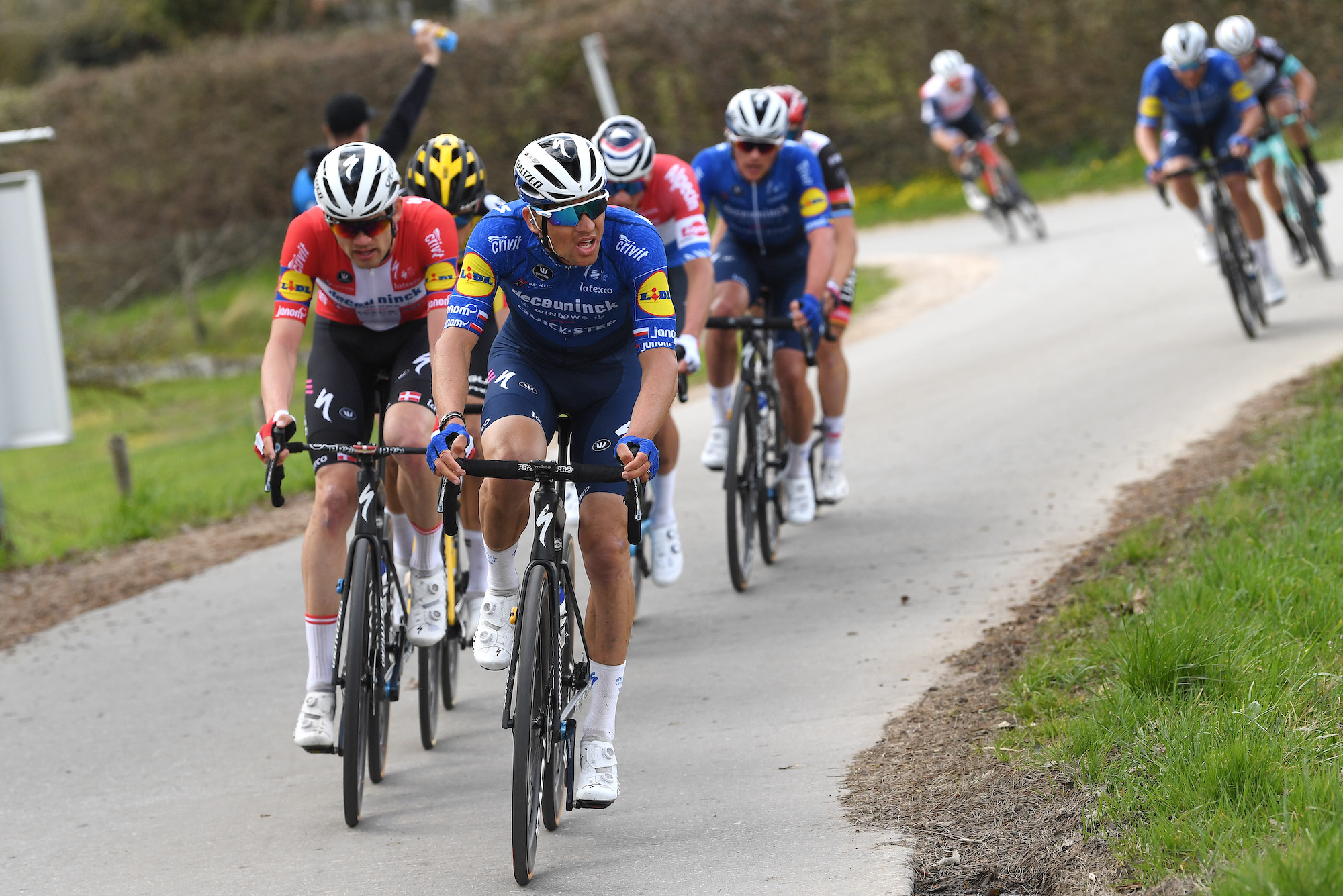
Despite blowing the race to pieces with their aggressive riding at the E3 SaxoBank Classic on Friday, Deceuninck - Quick-Step might adopt a very different approach at Ghent-Wevelgem.
While two of the main instigators of that win, Zdenek Štybar and Yves Lampaert, are both down to ride the line-up will also feature Sam Bennett, a card who the team would surely love to play in a bunch sprint.
The Irishman has been on fire all season and had success on Belgian roads during the week when he won Brugge-De Panne. If he can remain in contention over the climbs, Deceuninck - Quick-Step may curb their usual attacking instincts in order to set up a bunch sprint for him to win.
For other teams, a sprint finish is very clearly the favoured option. With Mathieu van der Poel skipping this race, Alpecin-Fenix will back either Tim Merlier or Jasper Philipsen for a sprint; defending champion Mads Pedersen is lining up for Trek-Segafredo; and Groupama-FDJ, Bora-Hansgrohe, Qhubeka-Assos and Team DSM also have sprinters as their leaders in Arnaud Démare, Pascal Ackermann, Giacomo Nizzolo and Cees Bol respectively.
With so many teams invested in a bunch finish, it may be hard for any attackers to succeed.
Will Van Aert bounce back?
Get The Leadout Newsletter
The latest race content, interviews, features, reviews and expert buying guides, direct to your inbox!
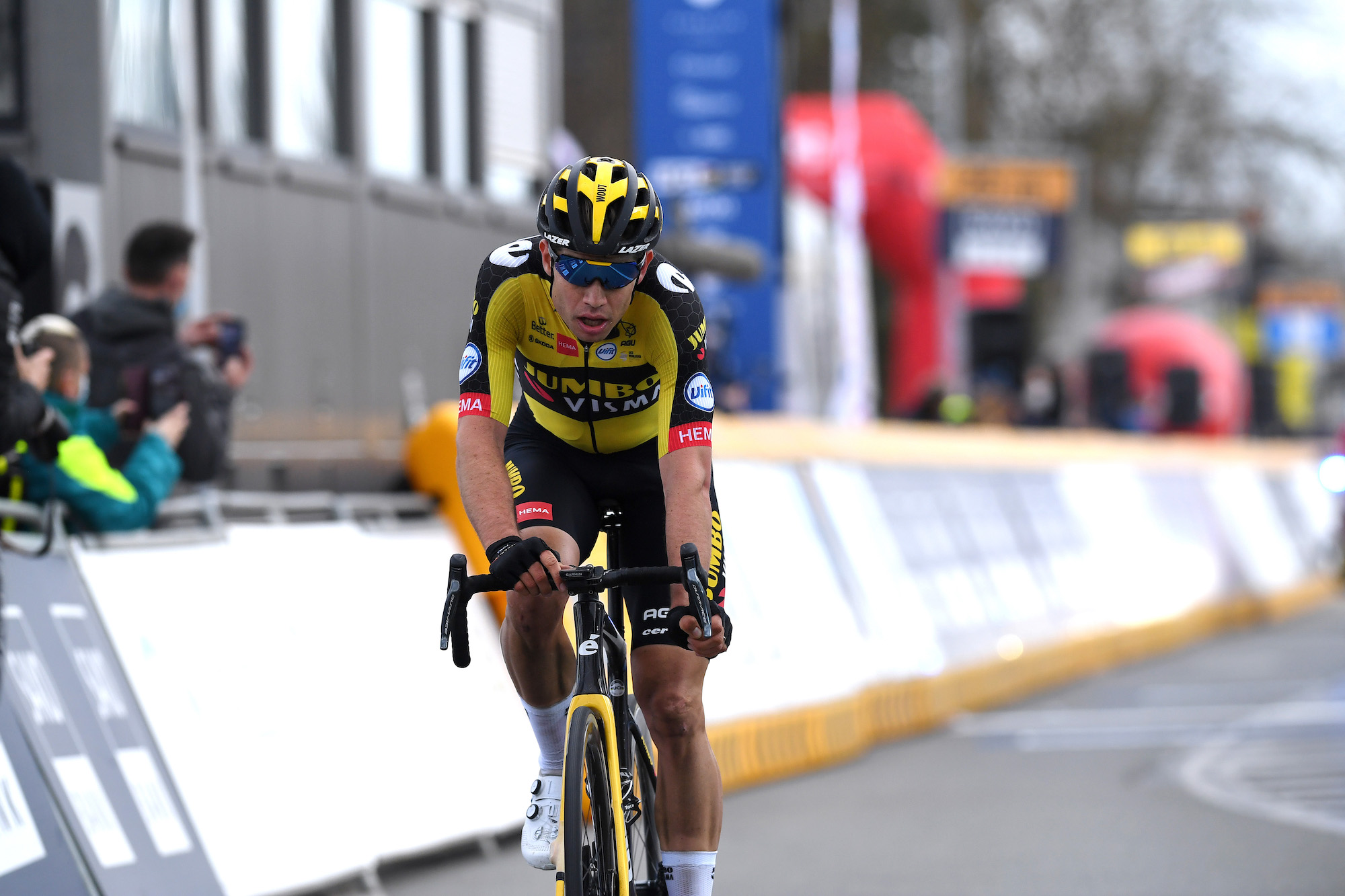
Wout van Aert (Jumbo-Visma) showed rare signs of weakness at the E3 SaxoBank Classic on Friday when his acceleration on the final climb stalled, but will still go into Ghent-Wevelgem as a hot favourite.
On paper, it’s a race that should suit him perfectly. The severity of the early climbs like the Kemmelberg is usually enough to distance the purer sprinters, but the race also often ends in a large group finish, which is where he can use his own lethal finishing sprint.
Van Aert’s record here so far in his career may be among his least impressive compared to other races, but results alone don’t tell the full story. Tenth in 2018 might look like a low finish by his standards now, but back then it was one of his first big results in a top classic; 29th in 2019 was a result of leading out the sprint for his team-mate, and 8th place last year would have been higher had he not found himself locked in a personal battle with Van der Poel.
While other sprinters certainly can’t be discounted if they make it to the finish, and the likes of Ag2r-Citroën duo Greg Van Avermaet and Oliver Naesen will no doubt try to go clear on the climbs, Van Aert will once again be a top favourite for the win.
A top field of sprinters in the women’s race
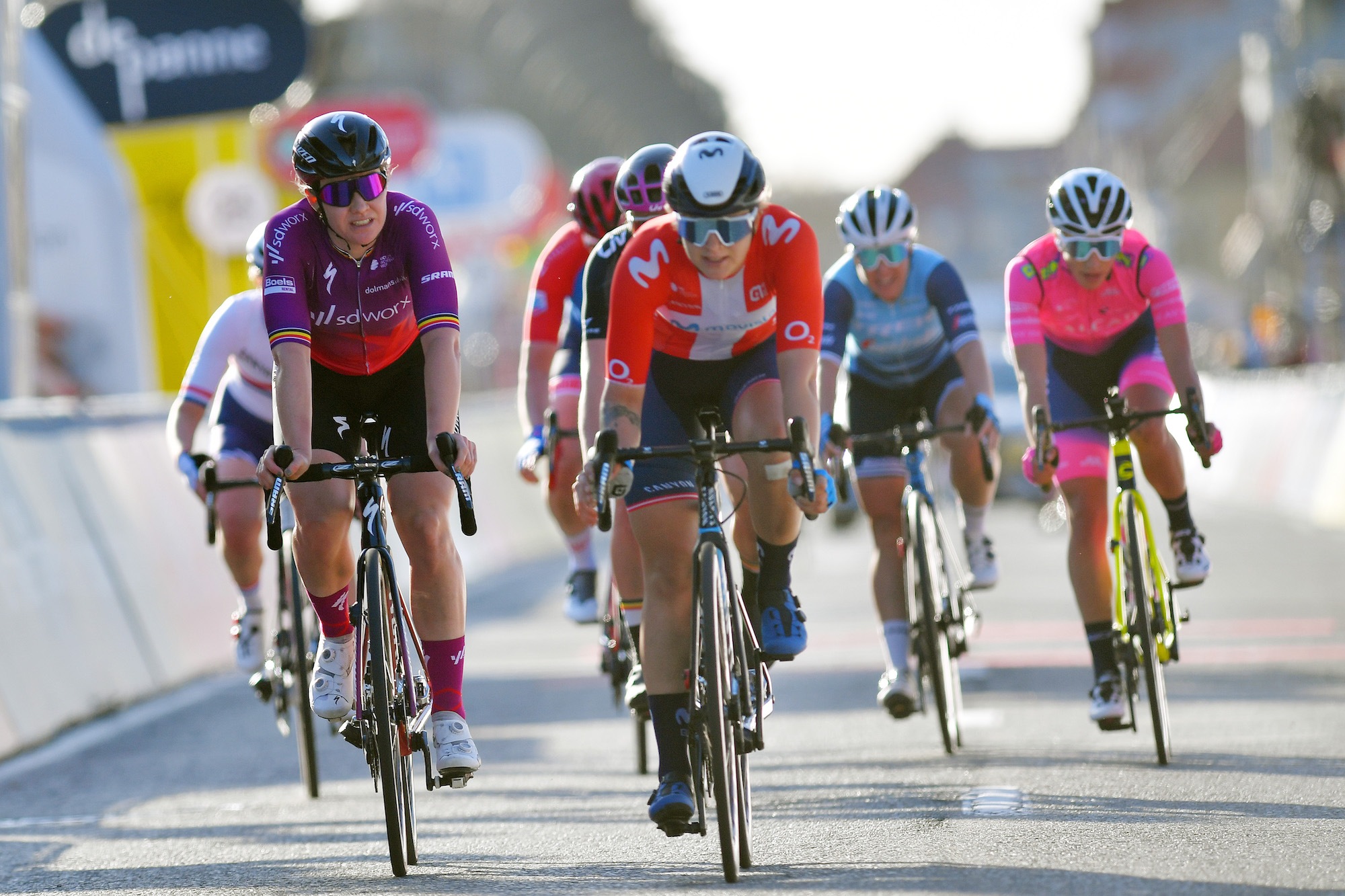
Although there are several tough cobbled climbs featured in the women’s race, in recent years they have not been enough to prevent the sprinters from dominating Ghent-Wevelgem.
Despite several attacks on the climbs and the long-run flat run-in to the finish, all three editions between 2017-2019 ended in bunch sprints. Even last year, when a group of eleven managed to go clear over the Kemmelberg, it was infiltrated by some of the peloton’s top sprinters, who managed to keep the group together for a sprint at the line.
Jolien d’Hoore (SD Worx) was the winner from the sprint that day, and will again be a top favourite thanks to an exceptional record at Ghent-Wevelgem that has seen her miss out on a top-two finish only once in the past four editions.
Her biggest rival is also likely to be the same rider she defeated into second place that day, Lotte Kopecky (Lotto-Soudal). The Belgian is one of the most rapidly improving riders in the peloton and has a kick capable of beating d’Hoore, while also having the punchy legs to still be a contender even if the race doesn’t finish in a sprint.
Lorena Wiebes (DSM) missed out on the selection last year, but has a sprint capable of matching these two, provided she can rediscover some form.
Both Kirsten Wild (Ceratizit-WNT) and Marta Bastianelli (Ale BTC Ljubljana) have the credentials having won here before in 2019 and 2019 respectively, while emerging young talents Elisa Balsamo (Valcar-Travel & Service) and Emma Norsgaard Jorgensen (Movistar), who were fifth and second at Brugge-De Panne respectively, also can’t be discounted in a sprint finish.
Longo Borghini and Deignan seeking to defy the odds and prevent a sprint finish
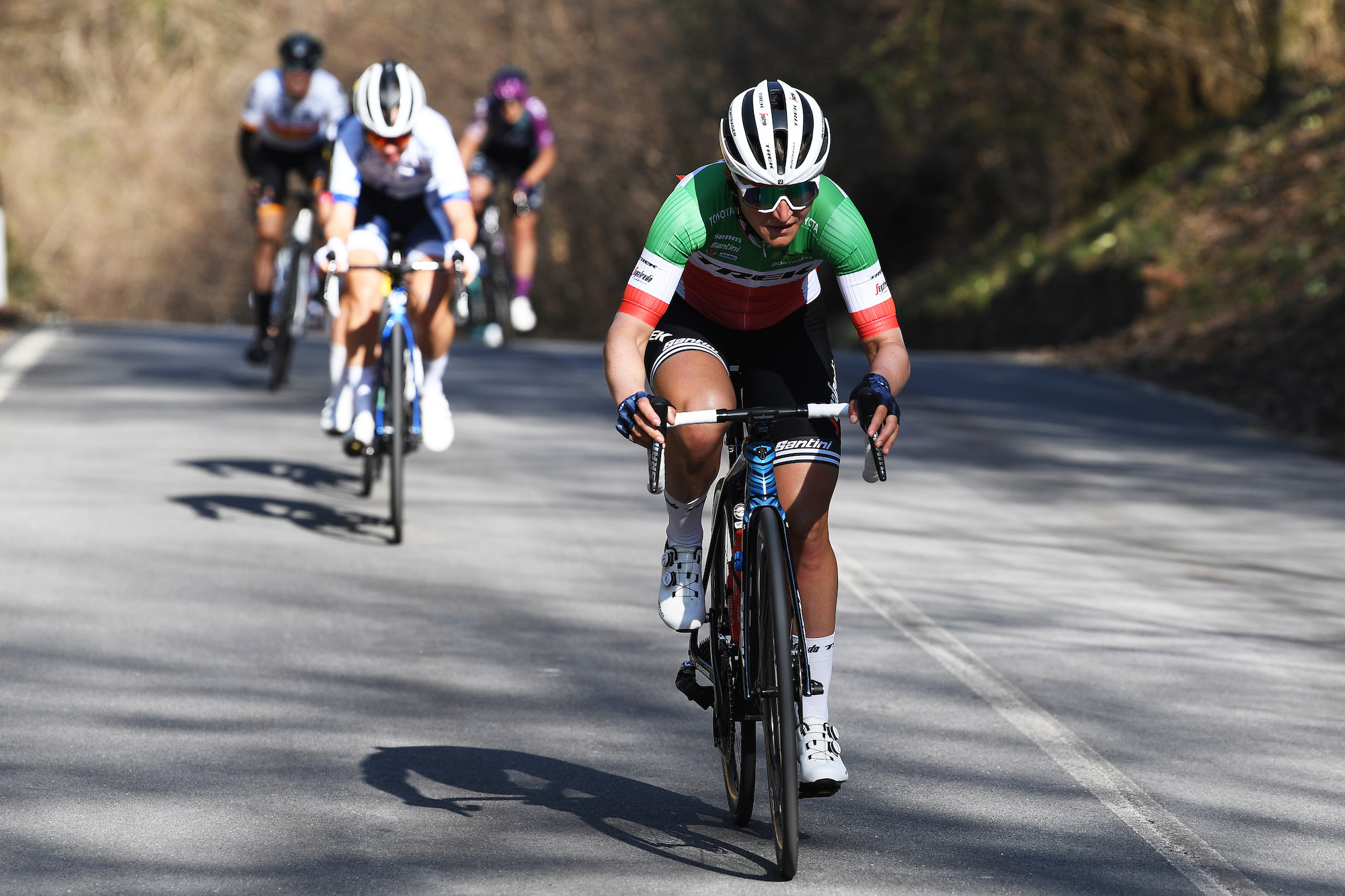
It’s been five years since an attacker last got the better of the sprinters at Ghent-Wevelgem, but that won’t discourage plenty from trying their luck on Sunday.
The second ascent of the Kemmelberg will be key for anyone hoping to deny the sprinters. Although the 30km flat run-in to the finish makes a solo attack from here to the finish very unlikely, an especially fast ascent of the climb could be enough to reduce the peloton to a very small size and drop the most threatening of the fast finishers.
Should a small group manage to get a significant gap over the Kemmelberg, any team with a numerical advantage will be at a great advantage. That’s what happened the last time an attacker was triumphant, in 2016, when Boels-Dolmans were able to launch several attacks with different riders before Chantal van den Broek-Blaak broke clear for victory.
Blaak isn’t down to ride this year, as her SD Worx team instead looks to set up for a sprint finish with Kirsten Wild and Amy Pieters. Instead, Trek-Segafredo look like the team most likely to try and make an attack stick. Their deadly duo of Elisa Longo Borghini and Lizzie Deignan are both riding and are likely to animate the race as much as they can to make things as difficult as possible for the sprinters.
Wind could play havoc

Of all the spring Classics, this is the one where wind can have the biggest impact.
Cast your mind back to 2015, when horrible weather caused carnage. Only 39 riders managed to make it to the finish in the men’s race, while Geraint Thomas even suffered the indignity of being literally blown off his bike.
Although the forecast doesn’t indicate anything like as strong winds as that day, even the moderate breezes being touted could play a big role.
Much of Ghent-Wevelgem takes place on open, exposed roads, which means that although the climbing is less severe than many of the other cobbled classics, splits constantly occur as the route changes direction and the race is strung out into echelons.
Rather than the climbs, therefore, it may be the wind that ends the chances for less experienced Classics riders such as Sam Bennett.

Thank you for reading 20 articles this month* Join now for unlimited access
Enjoy your first month for just £1 / $1 / €1
*Read 5 free articles per month without a subscription

Join now for unlimited access
Try first month for just £1 / $1 / €1
Stephen Puddicombe is a freelance journalist for Cycling Weekly, who regularly contributes to our World Tour racing coverage with race reports, news stories, interviews and features. Outside of cycling, he also enjoys writing about film and TV - but you won't find much of that content embedded into his CW articles.
-
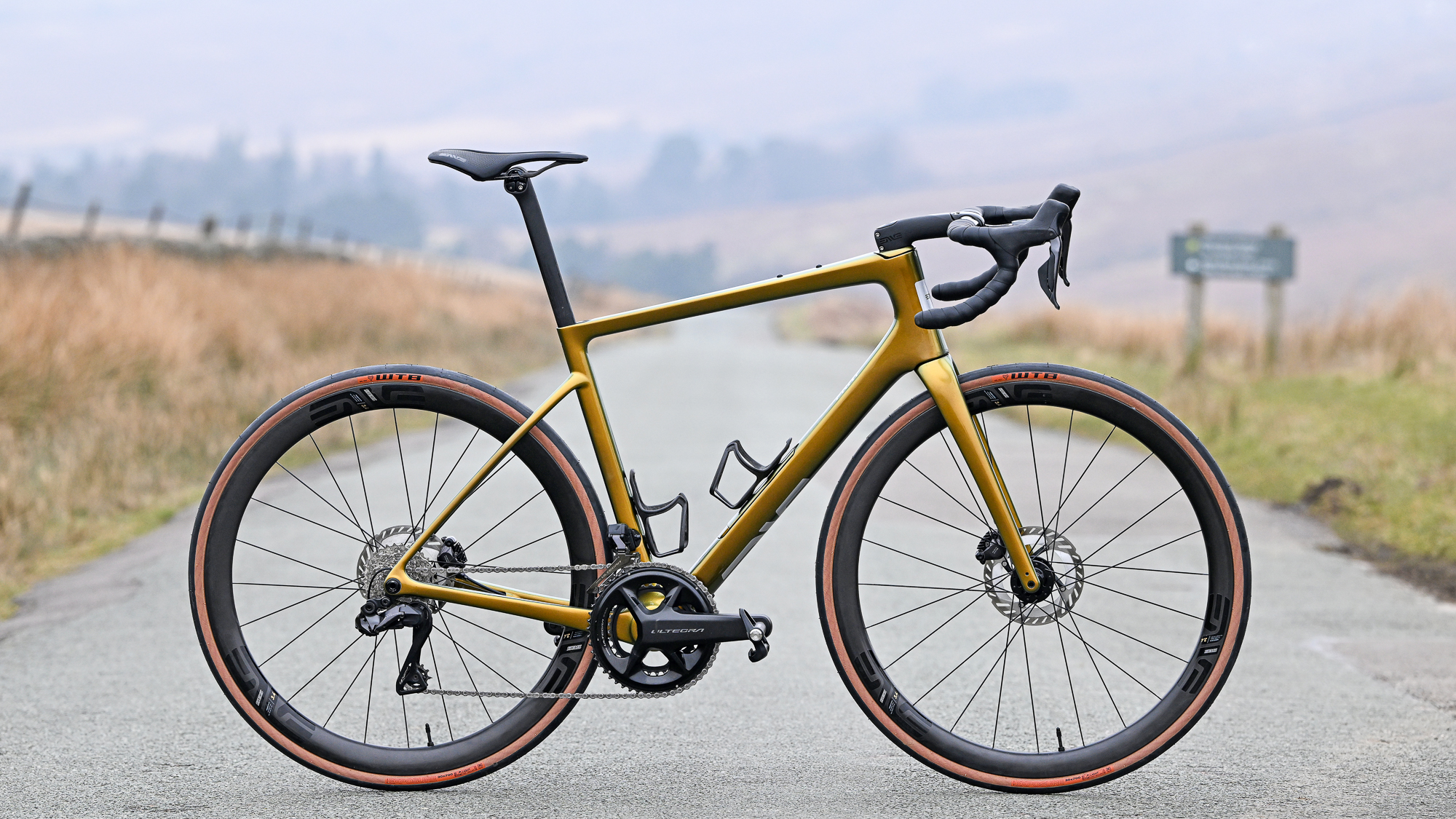 ENVE Fray - the ultimate all-road option?
ENVE Fray - the ultimate all-road option?The ENVE Fray makes a good case for itself being the best all-road bike, but does it make sense?
-
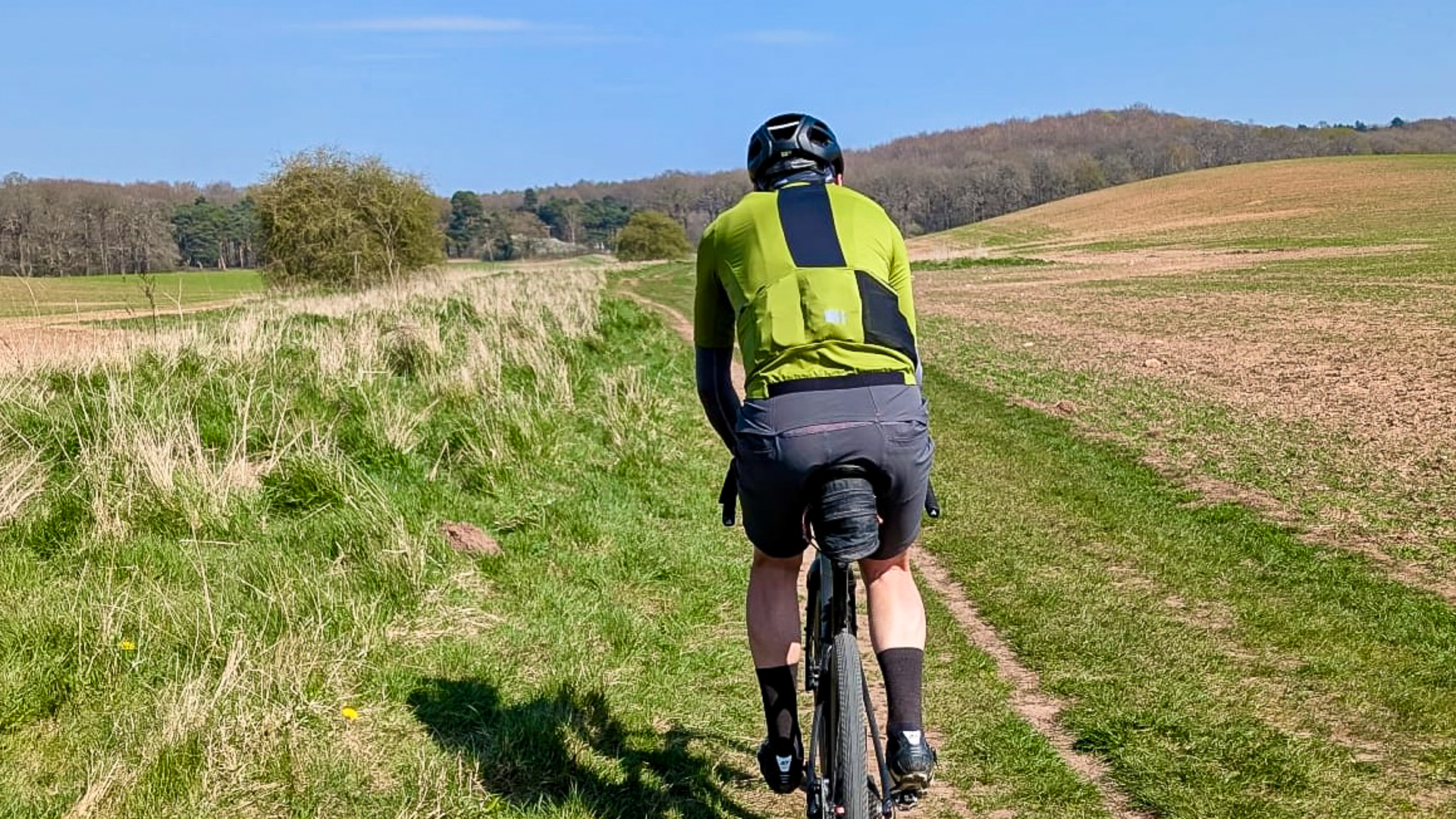 Madison Roam Men’s Short Sleeve Jersey - a jersey for gravel or endurance riding
Madison Roam Men’s Short Sleeve Jersey - a jersey for gravel or endurance ridingA more relaxed fit and five pockets could make the Madison Roam Men’s Short Sleeve Jersey ideal for long adventures on or off-road